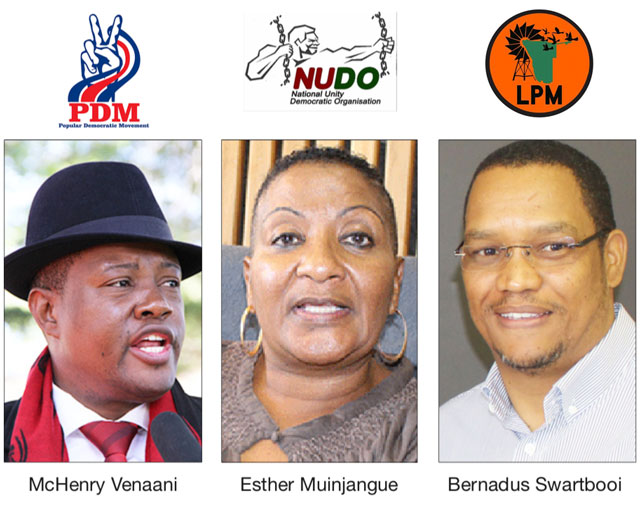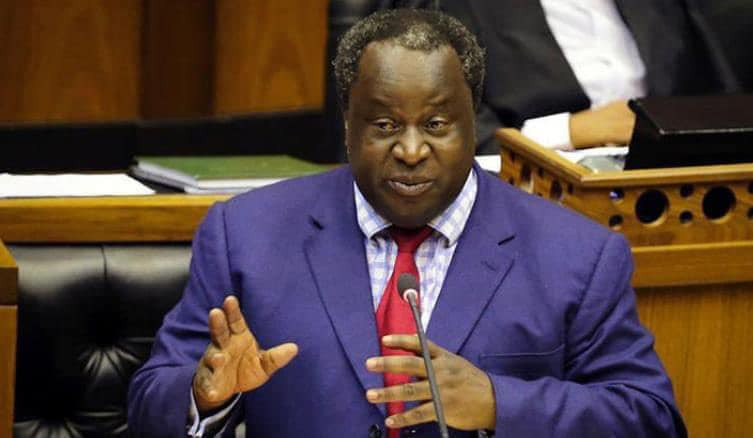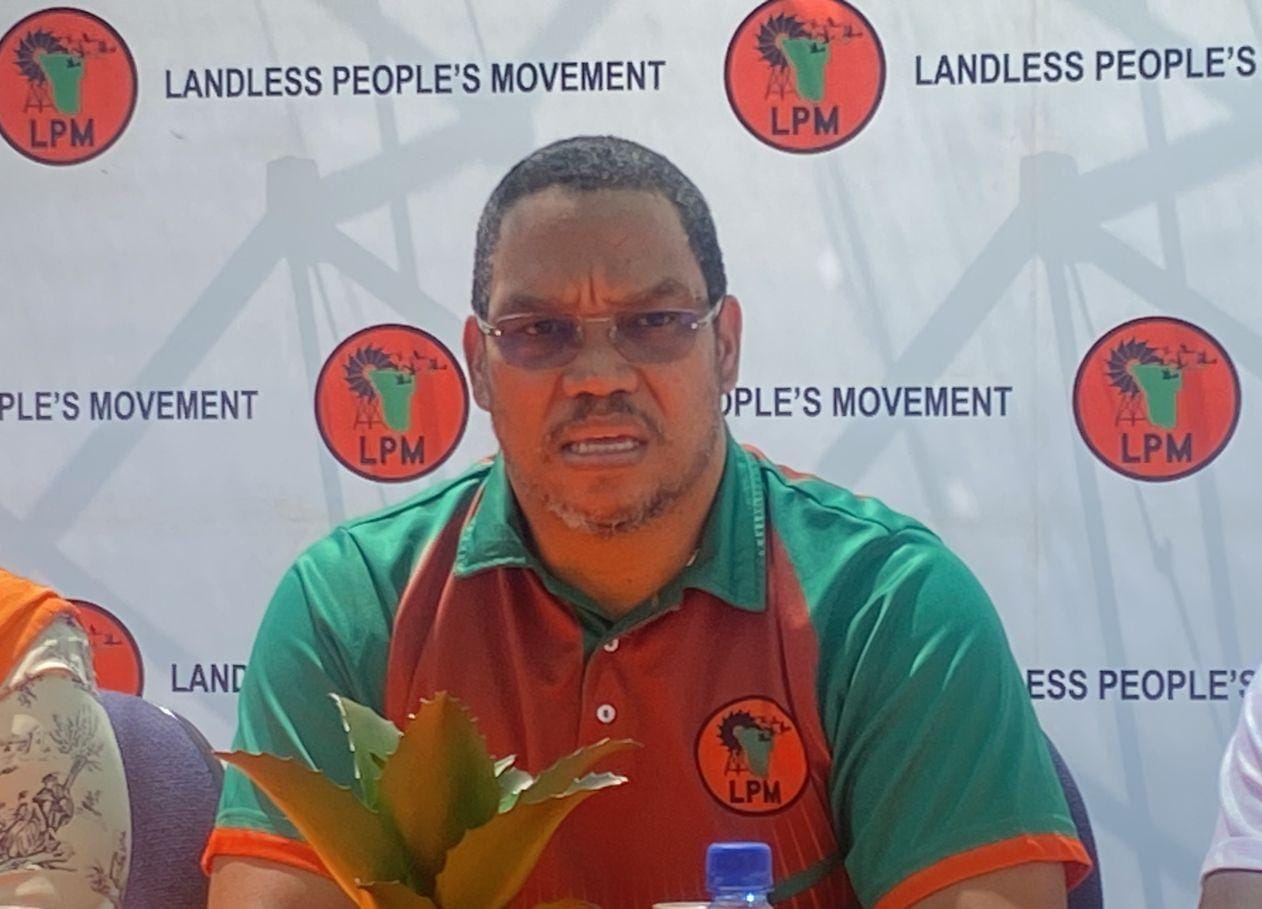SEVERAL political parties participating in the upcoming presidential and National Assembly elections have pledged to reduce the number of ministries, and abolish the positions of regional governors and their advisers in an attempt to reduce the bloated civil service.
Three parties – the Popular Democratic Movement (PDM), the Landless People’s Movement (LPM) and the National Unity Democratic Organisation (Nudo) – all want to reduce the number of ministries from the current 26 to less than 15.
These parties have also vowed to reduce the number of deputy ministers from the current 32 to less than four.
The scrapping of non-priority ministries and the abolishment of governor positions are among the plans by these political parties to reduce the bloated civil service, and in turn reduce the public sector wage bill.
The bloated civil service has been one of the hotly debated topics for the past years.
Opposition parties in parliament have been calling on the government to come up with sustainable ways on how to contain and reduce the civil service.
The government’s spending on salaries has been on the rise from 2009/10 when it was only N$7,8 billion, to about N$30 billion in the current financial year.
Bank of Namibia governor Iipumbu Shiimi has also expressed concern over the bloated civil service, stating that the ever-rising public sector wage bill was one of the factors contributing to the country’s prevailing cash flow problems.
Besides the bloated workforce, public servants’ wage hikes which were higher than inflation over the past years, have also increased the government’s wage bill.
Finance minister Calle Schlettwein earlier this year said the government was prepared to do “painful but correct things” to reduce the public sector wage bill.
However, the ruling Swapo Party has no plans articulated in their manifesto on how they want to reduce the civil service in the next five years.
The PDM promised only 15 ministries and four deputy ministers once they are elected into power.
PDM leader McHenry Venaani said the four deputy ministers will only serve in their priority ministries of finance, education, housing, and health, respectively.
Venaani also vowed to do away with the positions of vice president and deputy prime minister.
In their manifesto, the PDM said they will create a ministry of coordination evaluation and implementation which will work in conjunction with the Office of the Prime Minister.
This coordination ministry would thus be tasked with evaluating progress on the implementation of government policies.
The party furthermore promised to reduce expenditure by fixing the overlap and duplication between various government programmes, thereby reducing the bloated civil service, “with emphasis on natural attrition”.
LPM leader Bernadus Swartbooi recently promised a “smaller, leaner and sharper government” which will be run by 13 “competent people”.
Other plans to reduce the civil service by the LPM include the voluntary early retirement of people who are 55 and above.
Like the PDM, the LPM also wants to do away with multiple deputy ministerial portfolios. the LPM is yet to launch its election manifesto.
In addition to abolishing regional governors’ positions, Nudo wants to have a government with only 15 ministries, “carefully and purposefully designed” to direct government spending towards the mix of priorities, which will in turn lead to economic growth.
In their manifesto, Nudo said they will also scrap all advisory positions from regional level to Cabinet.
The party stated that it will only allocate one official vehicle per minister, and reduce state motorcades.
At the moment, the government has assigned at least three vehicles to ministers and their deputies.
The misuse of state vehicles by high-ranking public officials has been a hotly contested topic over the past years.
Although opposition parties have identified the problems, some political commentators were, however, not impressed with their proposals.
He added that cutting the number of ministers/ministries could help slightly reduce the wage bill, but the bigger question was how any government would deal with unwanted civil servants “who would be a consequence of this”, and make the government more efficient in terms of delivering services.
“Mass retrenchments are a prospect that no party would want to entertain, but the longer we continue to maintain an unsustainable civil service, the greater the danger that such a drastic solution will be forced upon us, or we face the prospect of not being able to pay civil servants on time.
“It’s perhaps not surprising that parties don’t want to address this very uncomfortable issue directly since it involves potentially unpopular decisions,” Hopwood observed.
Stay informed with The Namibian – your source for credible journalism. Get in-depth reporting and opinions for
only N$85 a month. Invest in journalism, invest in democracy –
Subscribe Now!






